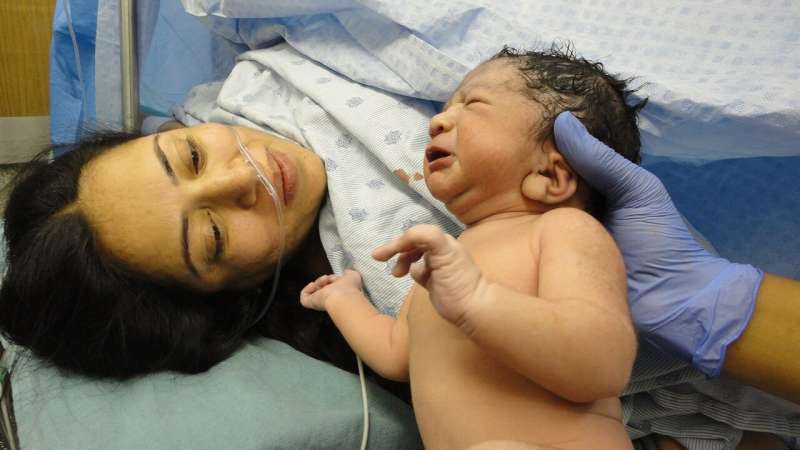Closing the gap in maternity care

A landmark study led by La Trobe University researchers has revealed that maternity care for First Nations mothers and babies can be improved through access to culturally safe continuity of midwifery care. Published in eClinical Medicine, the study was conducted in partnership with the Victorian Aboriginal Community Controlled Health Organisation (VACCHO), and three Melbourne public hospitals.
As part of the research, continuity of midwifery care was offered to women having a First Nations baby, with remarkable program uptake. Continuity of midwifery care, or "caseload midwifery," is where women have a known midwife care for them throughout their pregnancy, labor, birth and in the early postnatal period.
Professor Helen McLachlan from La Trobe University's Judith Lumley Centre, led the study, and said although the model is associated with substantially better health outcomes, very few First Nations women currently have access to this type of care.
"Women with access to midwife-led continuity of care—compared with standard maternity care—are less likely to experience preterm birth, a low birthweight baby or infant loss," Professor McLachlan said.
"Yet the availability of these models for First Nations women has been limited, and little is known about the capacity of large maternity services to implement culturally specific models for First Nations women."
Professor McLachlan said, given the very high uptake of First Nations women when caseload midwifery was offered, the need is clearly there.
"We argue that there should be a national push to implement, embed and sustain a culturally responsive caseload midwifery model for all First Nations women."
Study co-lead, Professor Della Forster, professor of midwifery at the Royal Women's Hospital and La Trobe University, said women who have midwife-led continuity are more likely to report being satisfied with their care, and to feel safe, informed, supported emotionally, and that their concerns are taken seriously.
"The enormous uptake of caseload midwifery by First Nations women in our study is likely to result in similar positive health outcomes for both mothers and babies," Professor Forster said.
According to the study authors, the caseload midwifery model offers a collaborative and coordinated approach, providing First Nations women the opportunity to have a known midwife who has appropriate cultural training to help them navigate their journey through the maternity care system, while maintaining their community and family supports.
About the study
The study was conducted at the Royal Women's Hospital, Joan Kirner Women's and Children's Hospital and Mercy Hospital for Women, all in Melbourne. The culturally specific caseload midwifery model was developed in partnership with VACCHO and participating maternity units and their First Nations health units. The program provided women having a First Nations baby with continuity of care during pregnancy, labor, birth and the early postnatal period from the same known midwife (with one or two back-up midwives).
The model was successfully implemented in three study sites between 2017 and 2020. Prior to this, over a similar timeframe, only 5.8% of First Nations women (n=34) had ever received caseload midwifery at the three sites combined, compared with over 4,800 non-First Nations women. With the partnerships formed in this study between the health services, researchers and First Nations health services, 703 of a total of 844 women having a First Nations baby received caseload midwifery care; an exponential increase.
More information: Helen L. McLachlan et al, Translating evidence into practice: Implementing culturally safe continuity of midwifery care for First Nations women in three maternity services in Victoria, Australia, eClinicalMedicine (2022). DOI: 10.1016/j.eclinm.2022.101415


















